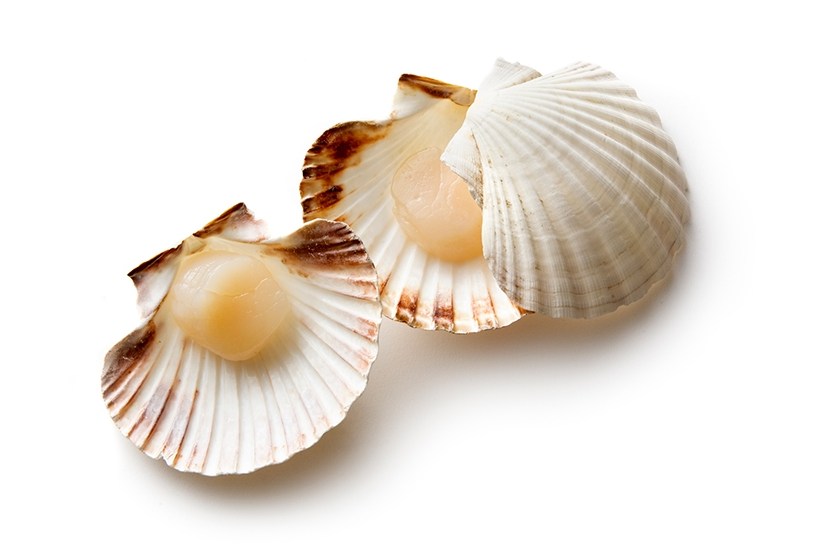‘You say scallops and I say scallops,’ sang my husband in his best Ginger Rogers accents. Since we both pronounce the bivalve to rhyme with dollop, there was a certain lack of contrast.
There has been a scallop war with France in past days. Though both French and English enjoy them on the plate, it is the French in the 15th century who provided us with the name, escalope. We just knocked the beginning off the word. Our cockle too, from at least a century earlier, is from the French word that gives them coquilles St Jacques. (Mussel is from Latin musculus, ‘muscle’, which also gave the word mus, ‘mouse’, from the obvious resemblance.) The scallop shell was an ideal emblem, easy to find at Santiago de Compostela, for pilgrims to pin on their coats.
Pliny had a nagging doubt about the scallop: does it have eyes? ‘Yet hath not Nature given eies to all creatures,’ he declares, in the translation by Philemon Holland of 1601. ‘Oisters have none: and for some other shell-fishes, it is hard to say whether they have any or none. As for Scallops, if a man stir his fingers against them as they lie gaping open, they will shut, as if they saw.’
As indeed they do. Each scallop has dear little forget-me-not blue eyes arranged round the edge of its mantle — up to 200 of them. Since they are only about a millimetre in diameter, you do not feel them crunch between the teeth.
The mysterious cockles of the heart, always ready to be warmed, take their name from the resemblance of the closed cockle-shell to the human heart. Both scallops and cockles cover a variety of species, but the classic cockle belongs to the family Cardiidae, from the Greek kardia, ‘heart’. Indeed the English heart and the Greek kardia share a common origin in the Indo-European cockle-soup of language.
The spelling scollop seems to be reserved for scolloped-shape edging. (This is like a row of scallop shells, or like the edge of one scallop shell; it’s impossible to distinguish.) As words tend to pick up spelling pronunciations, I suspect that in all senses, the pronunciation scollop will give way to scallop, and my husband will call the whole thing off.
Got something to add? Join the discussion and comment below.
Get 10 issues for just $10
Subscribe to The Spectator Australia today for the next 10 magazine issues, plus full online access, for just $10.
You might disagree with half of it, but you’ll enjoy reading all of it. Try your first month for free, then just $2 a week for the remainder of your first year.















Comments
Don't miss out
Join the conversation with other Spectator Australia readers. Subscribe to leave a comment.
SUBSCRIBEAlready a subscriber? Log in